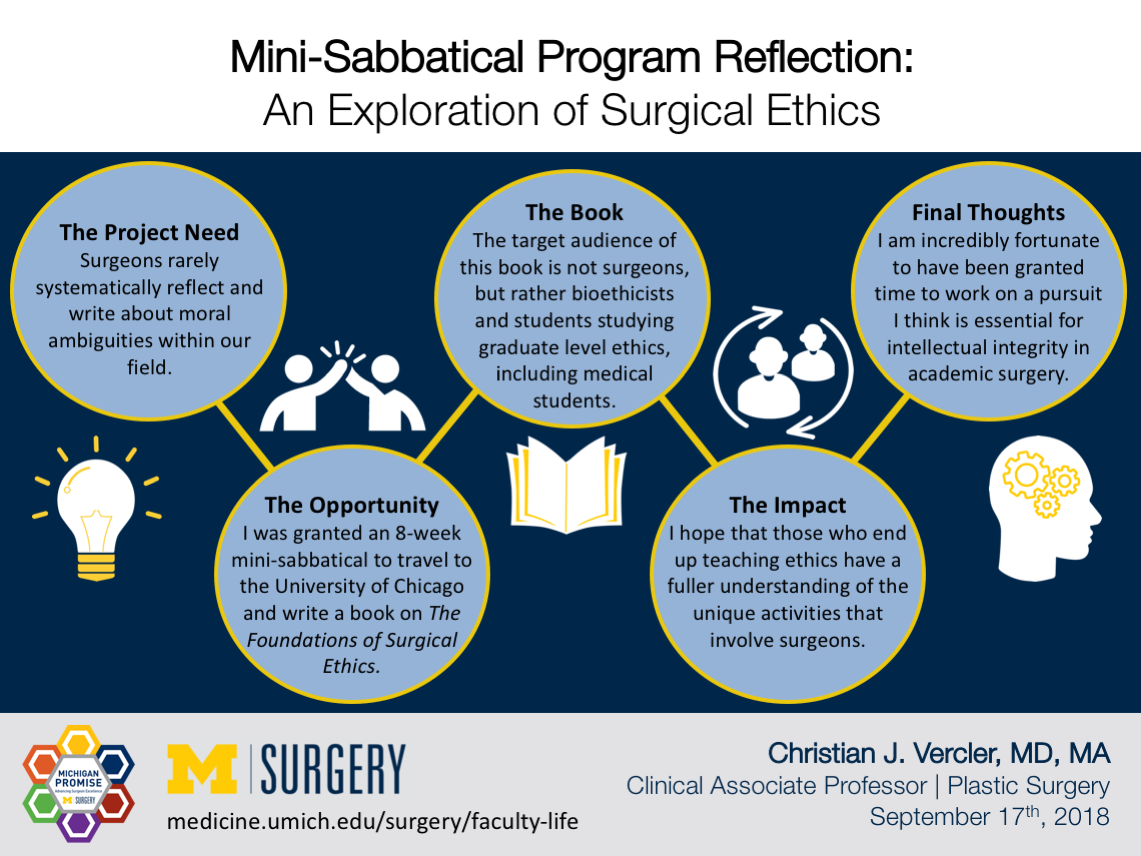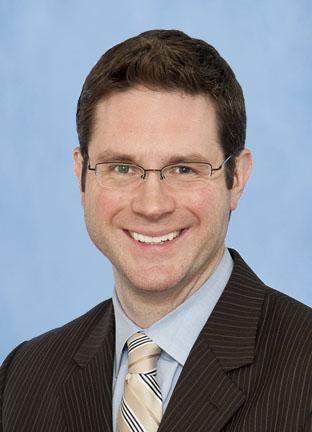
The Project Need
Surgeons engage in complex ethical decision-making on a daily basis, but rarely do they systematically reflect and write about moral ambiguities within our field. In fact, most publications in the field of bioethics address ethical conflicts related to medical problems and are written by philosophers, theologians, attorneys, or non-surgeon MDs. Thus the broader community of scholars engaging in bioethics discourse has little access to the ethical thinking of surgeons. But as we surgeons know there is a fundamental difference between internists and us. The sociologist Charles Bosk characterized the difference by noting that when the patient of an internist dies the question she is asked is, “What happened?” But when the patient of a surgeon dies the question her colleagues ask is, “What did you do?” The American College of Surgeons recently published a book on surgical ethics written by surgeons. It addresses specific topics and is a good source for surgeons and surgical trainees. However, there is very little written on surgical ethics as a discrete discipline that addresses the foundational philosophical claims on which our surgical practice rests. Therefore “mainstream medical ethics” misunderstands surgical values and surgeons mistrust “ethicists.”
The Opportunity
Under Dr. Mulholland’s leadership, the Department of Surgery offered several “mini-sabbaticals” to select faculty to further develop their academic pursuits in a given area. I was granted an 8 week block free from clinical activity to work on writing a book on The Foundations of Surgical Ethics. This functioned like a longer sabbatical that a philosopher would take: I traveled to the University of Chicago to discuss ideas with the leading scholar in surgical ethics Peter Angelos, MD, PhD and read a lot of books and wrote. To be granted the opportunity to engage in this type of research demonstrates the unbelievably progressive nature of surgical leadership at the University of Michigan.
The Book
The target audience of this book is not surgeons, but rather bioethicists and students studying graduate level ethics, including medical students. I argue that the foundation of surgical ethics is the patient-surgeon relationship, which is a covenantal bond marked by responsibility and accountability on the part of the surgeon. This contrasts with the contractual relationships that most people form with one another that are characterized by freedom and choice. The fiduciary nature of the patient-surgeon relationship entails considerably more moral work on the part of the surgeon than almost any other association. The philosophy of Aristotle and Alistair MacIntyre inform and sustain these ideas of surgical practice.
Impact
I view this project as translational. But rather than bench-to-bedside, this is OR-to-ivory tower. There is a collective wisdom accumulated through generations of surgical decision making that doesn’t fit neatly into the autonomy-centric “anti-paternalistic” ethos that dominates contemporary clinical ethics discourse. Even though this book is not written directly for surgeons, most of whom do not have time to explore philosophy, I hope these ideas will permeate through the Academy so that those ethicists who end up teaching ethics to medical students and surgical residents have a fuller understanding of the unique activities that involve surgeons. I currently teaching ethics to our surgical residents and have been invited as a visiting professor to several programs around the country (MGH, BWH, MSU) to discuss these ideas.
Final Thoughts
I am incredibly fortunate to have been granted time to work on such an esoteric pursuit, but one in which I think is so incredibly important for the intellectual integrity of the discipline of surgery as it exists within the University.
Article by Christian Vercler, MD, MA (Twitter: @halstedjr)

Christian J. Vercler, MD, MA
Contact Us
Reach out to join the conversation or to learn more about how to implement the Michigan Promise. Connect with the Department of Surgery or our faculty on Twitter to share your ideas or get in touch with the Office of Faculty & Resident Life to schedule a Michigan Promise presentation at your institution. You can also fill out our Michigan Promise Inquiry Form with any questions or comments.
Department of Surgery
2210F Taubman Center
1500 E. Medical Center Dr.
Ann Arbor, MI 48109
Phone: 734-232-5528
Email: [email protected]
Twitter: @UMichSurgery
Hashtag: #MichiganPromise

